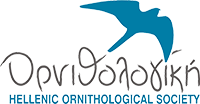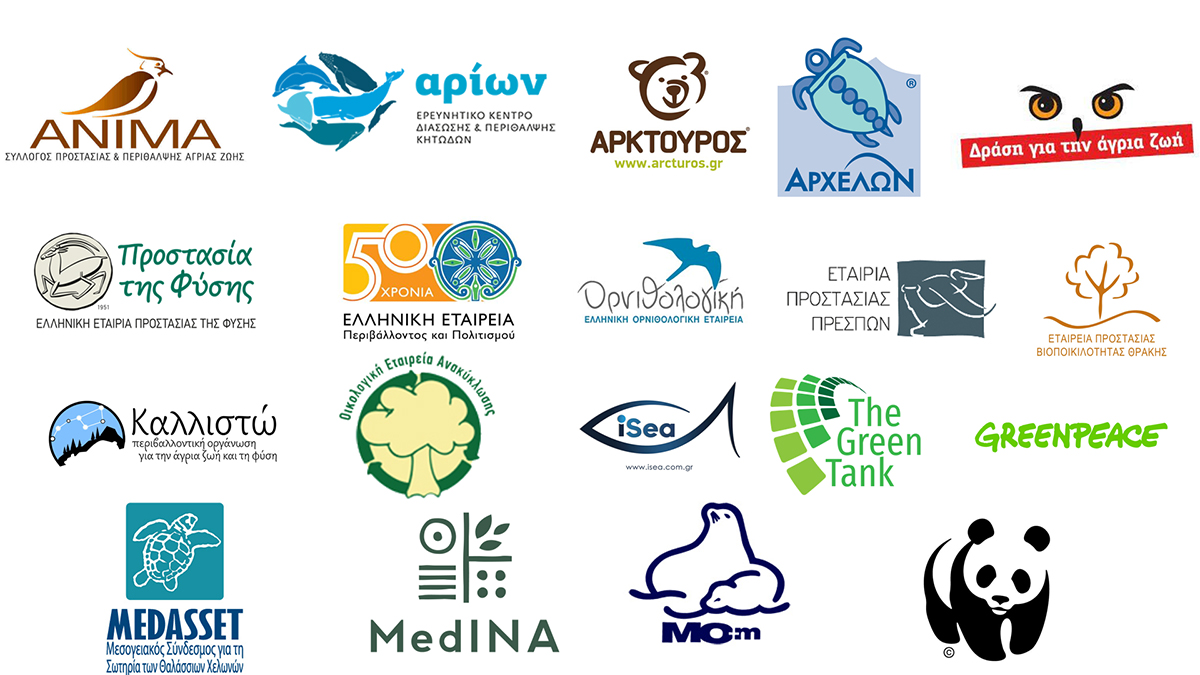HOS/BirdLife Greece joined 18 Greek Environmental Organizations that expressed their complete opposition to the proposal announced on the 20th December 2023 by the European Commission to degrade the wolf's protection status under the Bern Convention. The organizations called on the Greek government to proceed to reject the proposal during the next Council of Environment Ministers.
A few days ago, together with almost 300 European organizations and many of our partners at BirdLife International, we addressed a new open letter to the EC President, Mrs. Ursula von der Leyen, pointing out, among other things, that it is of great concern to us that a political decision on such a critical issue is planned ahead in an opaque manner, as it is based on misleading information rather on reliable scientific data[i].
The protection of wolves in Europe is not only a matter of ecological importance, but also a reflection of our commitment at national, European and international level to the preservation of biodiversity and the values of coexistence and tolerance. Wolves form an integral part of Europe's natural heritage, playing a vital role in maintaining ecosystem balance and biodiversity, and the return of the wolf to parts of Europe where the species was previously extinct is a major conservation success that should not to be put at risk.
Today's announcement by the European Commission also stands in stark contrast to a recently published survey of rural communities' perceptions of coexistence with Large Carnivores[ii]. Its results show that 68% of rural residents believe that wolves should be strictly protected and more than two-thirds (72%) agree that coexistence between humans and wolves should be achieved.
We call on the Greek Minister of Environment and Energy, Mr. Skylakakis, not to succumb to the pressure being exerted by the Council of Ministers of the Environment, for the adoption of the Commission's proposal to amend the Bern Convention, as regards the wolf protection status. The Bern Convention is one of the oldest and most important international conventions on nature protection that led to the introduction of the Habitats Directive (Directive 92/43/EEC), the cornerstone of nature protection in the EU.
It is unprecedented for the EC to request the degradation of the protection status of a protected species at international level. The Commission's proposal jeopardizes not only the protection of the wolf, but also biodiversity conservation efforts in the EU, setting a dangerous precedent for the protection of species and habitats, both inside and outside the EU.
At the same time, we call on the Greek government to rely on data based on science and not on the attempted demonization of an emblematic species of European fauna, such as the wolf. We request to pay the necessary attention to the proper implementation and utilization of effective prevention measures, best practices and financial tools to support livestock farmers suffering losses from wolves, as well as to improve and modernize the insurance and compensation system for affected producers by the Hellenic Organization of Agricultural Insurances (ELGA)[iii].
SIGNATURES
- ΑΝΙΜΑ, Hellenic Wildlife Care Association
- ARION, Cetacean Rescue and Care Research Centre
- ARCTUROS, Civil Society for the Protection and Management of Natural Environment and Wildlife
- ARCHELON, The Sea Turtle Protection Society of Greece
- Action for Wildlife
- Hellenic Society for the Protection of Nature
- ELLINIKI ETAIRIA, Society for the Environment and Cultural Heritage
- Hellenic Ornithological Society
- Society for the Protection of Prespa
- Society for the Protection of Biodiversity of Thrace
- Callisto, Wildlife and Nature Conservation Society
- Ecological Recycling Society
- iSea
- Green Tank
- Greenpeace Greece
- MEDASSET-Mediterranean Association to Save the Sea Turtles
- MedINA, Mediterranean Institute for Nature and Anthropos
- MOm, Hellenic Society for the Study and Protection of the Monk Seal
- WWF Greece
[i]A Greek translation of the letter is available at: https://www.callisto.gr/blog/koihttps://www.callisto.gr/blog/shedon-300-organoseis-ypostirizoyn-tin-prostasia-toy-lykoy-se-anoihti-epistoli-pros-tin-proedroni-anakoinosi-18-perivallontikon-organoseon-gia-deltio-typoy-tis%20-ee-poy-afora-tin-katastasi
[ii] The full survey is available at: https://www.eurogroupforanimals.org/files/eurogroupforanimals/2023-11/20231129_Survey%20Report%20Large%20carnivores.pdf
[iii] A more detailed statement on these issues has been made by 18 Greek environmental organizations, in their joint statement on September 20, 2023: https://www.callisto.gr/blog/koini-anakoinosi-18-perivallontikon-organoseon-gia-deltio-typoy-tis%20-ee-poy-afora-tin-katastasi




